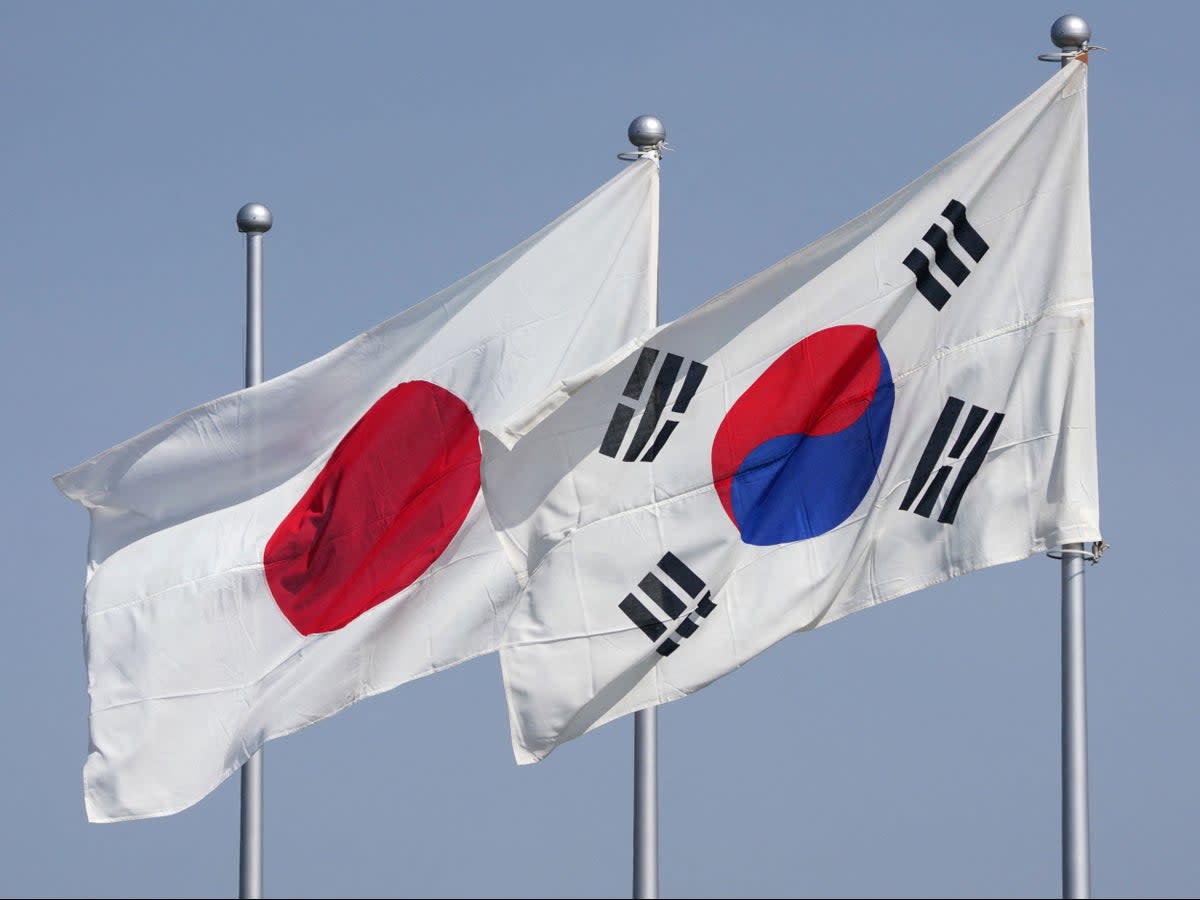Japan removing World War II monument to Korean workers

Japan is removing a World War II monument commemorating Korean workers from a park in the eastern part of the country, according to local reports.
The Gunma prefecture in Japan began removing the “Remembrance, Reflection and Friendship” memorial on Monday from the Gunma no Mori park in Takasaki.
The monument commemorates Koreans who were mobilised for labour during the Pacific War and died in Gunma prefecture.
On Monday morning, a government official read out a statement before starting the removal: “We will now carry out the removal of the ‘Remembrance, Reflection and Friendship’ memorial and restore (the place) to its original condition in accordance with Article 2 of the Act on Substitute Execution by Administration.”
Installed in 2004 by a citizens’ group with the prefecture’s permission, the memorial was subject to conditions like “not holding political events there”.
However, in 2014, the prefecture declined to renew the permit, citing a violation of these terms after political language was used during a memorial ceremony. An attendee mentioned terms like “forced mobilization” during a ceremony organised by the group at the memorial, local reports said. This decision was upheld by the Supreme Court in June 2022, the Jiji Press reported.
The removal of the monument will be completed by 11 February.
A day before the removal began, hundreds of people reportedly protested outside the park. Thousands of Japanese artists also signed a petition opposing the removal.
On the East Asia Forum’s website, an essay titled “Remembrance, reconciliation and the East Asian memory wars” says that in 2004 a group of “concerned” citizens from Japan’s Gunma prefecture erected a monument to Korean forced labourers in a local park.
An event was held in Gunma yesterday to protest the planned removal of a memorial to Korean laborers who were forcibly mobilized in WW2. A large number of police formed a wall between them and right-wing counter-demonstrators.pic.twitter.com/W318ikmqew https://t.co/2BS897WWQp
— Jeffrey J. Hall 🇯🇵🇺🇸 (@mrjeffu) January 29, 2024
It added that “the monument commemorates Koreans who were forcibly brought to Japan during the war to work in mines and on construction sites, where many died”.
The memorial is a simple stone structure, whose inscription includes the words “remembrance, reflection and friendship” in Japanese, Korean and English.
“The Gunma monument is just one of many small-scale local efforts by Japanese citizens and Korean residents in Japan to inscribe the memory of war in public consciousness and to promote a better, shared understanding of wartime history between Japan and its neighbours,” it adds.
Earlier, Gunma governor Ichita Yamamoto said: “We carefully negotiated and coordinated with (the citizens’ group that set up the monument) and proposed an alternative site, but we could not get their approval. We are a nation governed by the rule of law, so we have no choice but to carry out this solemnly.”
„Stop the Removal of the Memorial for Korean Workers in Gunma (Japan)” - Jetzt unterschreiben! https://t.co/NiFsU7wTaG via @ChangeGER
— Andreas Singler (@AndreasSingler) January 27, 2024
Mr Yamamoto responded to criticism that the removal of the monument might encourage hate speech and historical revisionism. He said: “It is not a matter of historical awareness, but rather the fact that a rule that had been set in the first place was broken. The removal is not connected to the twisting of history.”
Korea was formally annexed by Japan in 1910 and this marked the beginning of a harsh period of Japanese colonial rule in Korea. During World War II, Koreans were subjected to forced labour, and conscription into the Japanese military, and women were coerced into becoming “comfort women” — a euphemism for women forced into sexual slavery by the Japanese military.
Ryoichi Hattori, secretary general of Japan’s Social Democratic Party (SDP) was quoted as saying by Mainichi: “We should reflect on the negative history and aim for cooperation between Japan and South Korea. The removal would be an act to tarnish the name of former Prime Minister Keizo Obuchi, who was born in the prefecture and issued the Japan-South Korea Joint Declaration. If public opinion in South Korea reacts against the move, it could damage national interests as well.”
Gunma Prefecture refused to renew permit for Korean workers' memorial because a memorial ceremony attendee used terms like "forced mobilization"—a historical fact.
Gov. Yamamoto: "The removal is not connected to the twisting of history." Oh yes it is.https://t.co/BJFdcAHlQA— Jon Reinsch (@JonReinsch) January 26, 2024
Yasuhito Fujii, 74, the executive director of the activist group that installed and maintained the memorial was quoted as saying by Hankyoreh Shimbun: “Even the local government knows what it’s doing is shameful. Why else would they be removing it under wraps?” There were screens erected at the rear entrance to the park to bar entry to reporters and the public.
“Removing the memorial is an attempt to erase Japan’s history of wrongdoing. Even if the memorial is removed, the spirit of remembrance, reflection and friendship with Koreans will live on,” he said.
On Sunday one protestor said: “Removing the memorial will only add to the historical denial of far-right groups that claim that Koreans weren’t forced into labour.”


